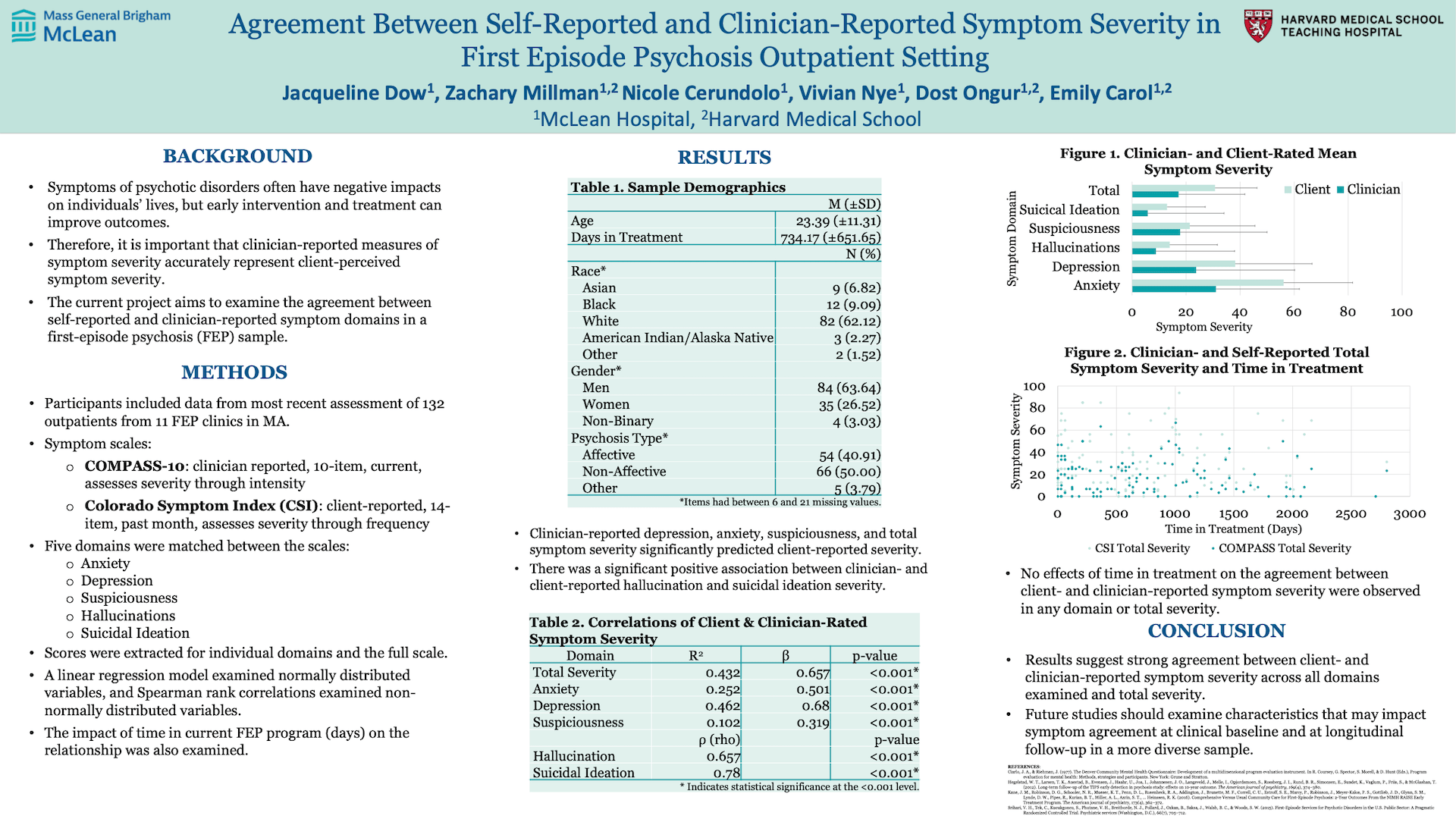Scientific Abstract
Background: The symptoms associated with psychotic disorders often have negative impacts on individuals’ lives, but early intervention and treatment can improve symptoms. Therefore, it is important that clinician-reported measures of symptom severity are accurate representations of client-perceived symptom severity. The current project aims to examine the agreement between self-reported and clinician-reported symptom domains in a first-episode psychosis sample.
Methods: Participants included 132 outpatients (age M=23.39) from 11 first-episode psychosis clinics in Massachusetts. Symptom scales included clinician-reported COMPASS-10 and client- reported Modified Colorado Symptom Index (CSI) from the EPINET Common Assessment Battery. Five domains were matched across each scale (hallucinations, anxiety, depression, suspiciousness, and suicidal ideation). Scores were proportioned from available data as total scores and scores within each domain.
Results: In a linear regression model, total clinician-reported symptom severity significantly predicted client-reported total symptom severity (p<0.001). Clinician-reported depression (p<0.001), anxiety (p<0.001), and suspiciousness (p<0.001) severity also significantly predicted client-reported severity. Spearman correlations indicated a significant positive association between clinician-reported and client-reported hallucination severity, (p<0.001), and a significant positive association between clinician-reported and client-reported self-harm severity, (p<0.001). No effects of time in treatment on the agreement between client- and clinician-reported symptom severity were observed in any domain or total severity.
Conclusion: Results suggest strong agreement between client and clinician-reported symptom severity across all domains examined and total severity. Future studies should examine the characteristics that may impact agreement.
Search posters

